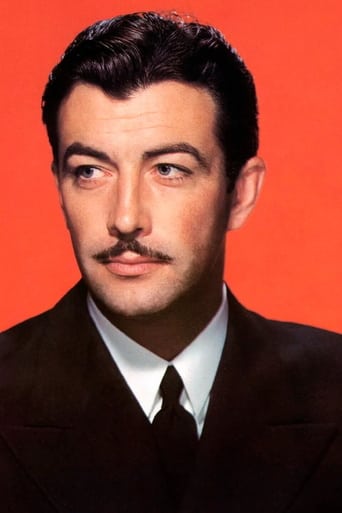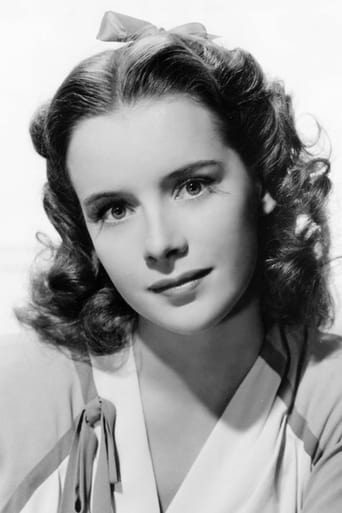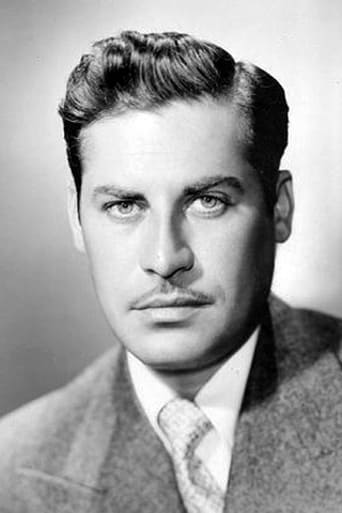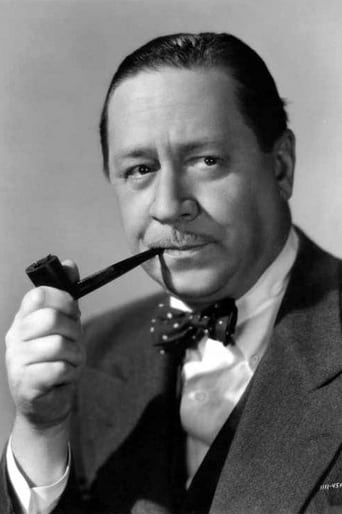Pacionsbo
Absolutely Fantastic
ChicRawIdol
A brilliant film that helped define a genre
Humaira Grant
It’s not bad or unwatchable but despite the amplitude of the spectacle, the end result is underwhelming.
Isbel
A terrific literary drama and character piece that shows how the process of creating art can be seen differently by those doing it and those looking at it from the outside.
gvfj
I own this film on DVD, having bought it from a private collector a while back. I like it, not for its plot, musical score or cinematography, but for the simple reason that it was a brash attempt by the government of the day to encourage Americans to sacrifice themselves to save a regime that represented the secret wishes of an elite circle of Washington insiders. I was stimulated to search for a copy after reading Ayn Rand's 1947 testimony before the HUAC committee on-line. Long interested in this pivotal period of world history, I had previously acquired the German newsreels for the latter part of 1941 (i.e. Operation Barbarossa). German army cameramen had recorded a great deal of the conditions in the cities such as Kiev, Minsk, Smolensk, Nikolayev, and dozens of rural villages in the Ukraine, Belarus and Russia. Their impossible-to-stage pictures showed first-world, European people, in the middle of the twentieth century, living in a degree of abject poverty, squalor, and despair which Americans would not believe without seeing. It rivaled the worst of the third world. Humans intentionally treated as expendable beasts of burden by their Bolshevik oppressors.So for Hollywood to produce such a glaring lie (not to mention distortion of the chronology of events) as "Song of Russia" in order to persuade people to support, or even risk life to participate in, a war to save such a regime is practically an act of enmity against its own people, in my opinion. It's easy to see why the Hollywood crowd is trying to make this movie disappear down an Orwellian memory hole. Highly recommended for anyone who doubts that Hollywood is anti-American.
haridam0
It seems HUAC in '47 took depictions of life in the Soviet Union as portrayed in "Song of Russia," '43, much too seriously.Anyone looking at this film could tell it was a romantic tale the writer contrived to tell a love story against all odds.Robert Taylor seemed on familiar ground here. Only four years earlier, in "Waterloo Bridge," he'd found a love in war torn England. She was a classical artist who fell madly in love with him. In "Song of Russia" both he and his love are classical artists who make beautiful music together.Like "Bridge," "Russia" is photographed in sharp black and white, and the film is peppered with lots of musical interludes, mostly by Tchaikovsky. Taylor's "orchestral conducting" was well coached (save for a "lost" left arm) and Susan Peter's "concerto playing" was effectively "mimed." (One of Jerome Kern's most haunting songs, "And Russia Is Her Name," is given a less than adequate rendition.) It was fun to hear John Hodiak's initial Russian accent finally give way to no accent at all. And the village people do all the stereotypical things, like sing happy rounds while returning from the fields, and performing specialty ethnic dances at evening vodka fests.Throw in the start of WW2 and the drama's intensified. Still, the power of the lovers' affection is too strong and ultimately that love triumphs.
bkoganbing
During the period of truce of the Hitler-Stalin pact, American symphony conductor Robert Taylor is touring the Soviet Union with his manager Robert Benchley. Soviet classical pianist Susan Peters stalks Taylor, but eventually gets to meet him when she sits down and plays Tonight We Love. That little piece of Tschaikovsky was a big pop hit in America at the time. It's a tender love story that develops between Taylor and the classical groupie and they marry. He visits her in her village, meets her people and is really impressed by the way they've just taken to Communism.Of course Hitler blinks in the game of diplomatic chicken he was playing with Stalin and attacks the Soviet Union. The people organize and resist. What will happen with Taylor and Peters.Robert Taylor resisted loud and long about doing this film, it seared at his anti-Communist soul. But he was also an agreeable contract employee at MGM and Louis B. Mayer said he wasn't thrilled about it either, but that the request for this film came directly from the Office of War Information. Of course being hammerlocked into doing Song of Russia is what ultimately led to Taylor being a friendly witness at the House Un American Activities Committee. You could see Taylor's heart wasn't in this one. Susan Peters comes out so much the better. What a tragic loss she was, a bright beautiful girl with a great career ahead of her, paralyzed and eventually dying from a hunting accident.Like 20th Century Fox's North Star, Song of Russia has so much music in it, it could qualify as a musical. Jerome Kern and E.Y. Harburg contributed a forgettable song called And Russia Is Her Name. Like North Star, Song of Russia was later cited as two of the three biggest examples of Communist influence in Hollywood, the other being Mission to Moscow.The Soviets at great sacrifice saved the world from Hitler and made it possible for Soviet ideological driven imperialism to move into the vacuum. Now that the Cold War is receding in our collective consciousness, maybe a film showing the Russian contribution to winning World War II can be made without arousing all the right wing yahoos.This one certainly wasn't it.
SirIvanhoe
"Song of Russia" was never made to accurately portray Soviet peasantry, but rather to enlighten the West of the Anti-Nazi plight of the Russian citizens.Director Gregory Ratoff is no more guilty of tainting the truth for entertainment's sake than were many American directors for their careless, racist portrayal of the "savage" American Indian.Stalin and Hitler were both maniacal murderers, but in 1943 much less was known of the atrocities these two leaders committed. If Western leaders had known better in 1943, greater efforts should have been made to stop the bloodshed. 20/20 hindsight gives us great power to criticize filmmakers of that period, but what of Roosevelt and Churchill? What did they know, and what did they do about it?"Song of Russia" was a warning and a call for help.Although Russian peasants weren't as "Americanized" as the film portrays, they did defend their land against the fascists and lost over 20 million people doing it.I enjoyed the film, and yes, I thought the peasants looked a bit well-to-do for the period, but that helped me imagine what we as Americans might have confronted if the Nazis had made it past England and Russia.





